Subtitle "Afrikaans" was produced by machine.Subtitle "አማርኛ" was produced by machine.Subtitle "العربية " was produced by machine.Subtitle "Ārāmāyâ" was produced by machine.Subtitle "azərbaycan dili " was produced by machine.Subtitle "беларуская мова " was produced by machine.Подзаглавието "България" е създадено от машина.সাবটাইটেল "বাংলা " মেশিন দ্বারা তৈরি করা হয়েছিল।Subtitle "བོད་ཡིག" was produced by machine.Subtitle "босански" was produced by machine.Subtitle "català" was produced by machine.Subtitle "Cebuano" was produced by machine.Subtitle "ગુજરાતી" was produced by machine.Subtitle "corsu" was produced by machine.Podtitul "Čeština" byl vytvořen automaticky.Subtitle "Cymraeg" was produced by machine.Subtitle "Dansk" was produced by machine.Untertitel "Deutsch" wurde maschinell erzeugt.Subtitle "Untertitel" was produced by machine.Ο υπότιτλος "Ελληνικά" δημιουργήθηκε αυτόματα.Subtitle "English" was produced by machine.Subtitle "Esperanto" was produced by machine.El subtítulo "Español" se generó automáticamente.Subtitle "Eesti" was produced by machine.Subtitle "euskara" was produced by machine.Subtitle "فارسی" was produced by machine.Subtitle "Suomi" was produced by machine.Le sous-titrage "Français" a été généré automatiquement.Subtitle "Frysk" was produced by machine.Subtitle "Gaeilge" was produced by machine.Subtitle "Gàidhlig" was produced by machine.Subtitle "Galego" was produced by machine.Subtitle "Schwizerdütsch" was produced by machine.Subtitle "هَوُسَ" was produced by machine.Subtitle "Ōlelo Hawaiʻi" was produced by machine.Subtitle "עברית" was produced by machine.Subtitle "हिन्दी" was produced by machine.Subtitle "Mẹo" was produced by machine.Subtitle "Hrvatski" was produced by machine.Subtitle "Kreyòl ayisyen " was produced by machine.Subtitle "Magyar" was produced by machine.Subtitle "Հայերեն" was produced by machine.Subtitle "Bahasa Indonesia " was produced by machine.Subtitle "Asụsụ Igbo " was produced by machine.Textun"Íslenska" var framkvæmt vélrænt.Sottotitoli "Italiano" sono stati generati automaticamente.字幕は"日本語" 自動的に生成されました。Subtitle "Basa Jawa" was produced by machine.Subtitle "ქართული" was produced by machine.Subtitle "қазақ тілі " was produced by machine.Subtitle "ភាសាខ្មែរ" was produced by machine.Subtitle "ಕನ್ನಡ" was produced by machine.Subtitle "한국어" was produced by machine.Subtitle "कोंकणी語" was produced by machine.Subtitle "کوردی" was produced by machine.Subtitle "Кыргызча" was produced by machine.Subtitle " lingua latina" was produced by machine.Subtitle "Lëtzebuergesch" was produced by machine.Subtitle "Lingala" was produced by machine.Subtitle "ພາສາ" was produced by machine.Subtitle "Lietuvių" was produced by machine.Subtitle "Latviešu" was produced by machine.Subtitle "fiteny malagasy" was produced by machine.Subtitle "te reo Māori" was produced by machine.Subtitle "македонски јазик" was produced by machine.Subtitle "malayāḷaṁ" was produced by machine.Subtitle "Монгол хэл" was produced by machine.Subtitle "मराठी" was produced by machine.Subtitle "Bahasa Malaysia" was produced by machine.Subtitle "Malti" was produced by machine.Subtitle "မြန်မာစာ " was produced by machine.Subtitle "नेपाली" was produced by machine.Ondertitels "Nederlands" machinaal geproduceerd.Subtitle "Norsk" was produced by machine.Subtitle "chiCheŵa" was produced by machine.Subtitle "ਪੰਜਾਬੀ" was produced by machine.Podtytuł "Polska" został utworzony przez maszynę.Subtitle "پښتو" was produced by machine.Legenda "Português" foi gerada automaticamente.Subtitle "Română" was produced by machine.Subtitle "Язык жестов (Русский)" was produced by machine.Субтитры "Pусский" были созданы машиной.Subtitle "Kinyarwanda" was produced by machine.Subtitle "सिन्धी" was produced by machine.Subtitle "Deutschschweizer Gebärdensprache" was produced by machine.Subtitle "සිංහල" was produced by machine.Subtitle "Slovensky" was produced by machine.Subtitle "Slovenski" was produced by machine.Subtitle "gagana fa'a Samoa" was produced by machine.Subtitle "chiShona" was produced by machine.Subtitle "Soomaaliga" was produced by machine.Titra "Shqip" u krijua automatikisht.Subtitle "србски" was produced by machine.Subtitle "Sesotho" was produced by machine.Subtitle "Basa Sunda" was produced by machine.Undertext "Svenska" är maskinell skapad.Subtitle "Kiswahili" was produced by machine.Subtitle "தமிழ்" was produced by machine.Subtitle "తెలుగు" was produced by machine.Subtitle "Тоҷикй" was produced by machine.Subtitle "ภาษาไทย" was produced by machine.ንኡስ ኣርእስቲ "ትግርኛ" ብማሽን እዩ ተፈሪዩ።Subtitle "Türkmençe" was produced by machine.Subtitle "Tagalog" ay nabuo sa pamamagitan ng makina.Altyazı "Türkçe" otomatik olarak oluşturuldu.Subtitle "татар теле" was produced by machine.Subtitle "Українська " was produced by machine.ذیلی عنوان "اردو" مشین کے ذریعہ تیار کیا گیا تھا۔Subtitle "Oʻzbek" was produced by machine.Phụ đề được tạo bởi máy.Subtitle "Serbšćina" was produced by machine.Subtitle "isiXhosa" was produced by machine.Subtitle "ייִדיש" was produced by machine.Subtitle "Yorùbá" was produced by machine.Subtitle "中文" was produced by machine.Subtitle "isiZulu" was produced by machine.
kla.TV accepts no liability for defective translation.kla.TV accepts no liability for defective translation.kla.TV accepts no liability for defective translation.kla.TV accepts no liability for defective translation.kla.TV accepts no liability for defective translation.kla.TV accepts no liability for defective translation.kla.TV не носи отговорност за некачествен превод.অপর্যাপ্ত অনুবাদের জন্য kla.TV কোন দায় বহন করে না।kla.TV accepts no liability for defective translation.kla.TV accepts no liability for defective translation.kla.TV accepts no liability for defective translation.kla.TV accepts no liability for defective translation.kla.TV accepts no liability for defective translation.kla.TV accepts no liability for defective translation.kla.TV nenese žádnou odpovědnost za chybné překlady.kla.TV accepts no liability for defective translation.kla.TV accepts no liability for defective translation.kla.TV übernimmt keine Haftung für mangelhafte Übersetzung.kla.TV accepts no liability for inadequate translationΗ kla.TV δεν φέρει καμία ευθύνη για ανεπαρκή μετάφραση.kla.TV accepts no liability for defective translation.kla.TV accepts no liability for defective translation.kla.TV no se hace responsable de traducciones incorrectas.kla.TV accepts no liability for defective translation.kla.TV accepts no liability for defective translation.kla.TV accepts no liability for defective translation.kla.TV accepts no liability for defective translation.kla.TV n'assume aucune responsabilité en cas de mauvaise traduction.kla.TV accepts no liability for defective translation.kla.TV accepts no liability for defective translation.kla.TV accepts no liability for defective translation.kla.TV accepts no liability for defective translation.kla.TV accepts no liability for defective translation.kla.TV accepts no liability for defective translation.kla.TV accepts no liability for defective translation.kla.TV accepts no liability for defective translation.kla.TV accepts no liability for defective translation.kla.TV accepts no liability for defective translation.kla.TV accepts no liability for defective translation.kla.TV accepts no liability for defective translation.kla.TV nem vállal felelősséget a hibás fordításértkla.TV accepts no liability for defective translation.kla.TV accepts no liability for defective translation.kla.TV accepts no liability for defective translation.kla.TV tekur enga ábyrgð á áræðanleika þýðingarinnarKla.TV non si assume alcuna responsabilità per traduzioni lacunose e/o errate.Kla.TV は、不適切な翻訳に対して一切の責任を負いません。kla.TV accepts no liability for defective translation.kla.TV accepts no liability for defective translation.kla.TV accepts no liability for defective translation.kla.TV accepts no liability for defective translation.kla.TV accepts no liability for defective translation.kla.TV accepts no liability for defective translation.kla.TV accepts no liability for defective translation.kla.TV accepts no liability for defective translation.kla.TV accepts no liability for defective translation.kla.TV accepts no liability for defective translation.kla.TV accepts no liability for defective translation.kla.TV accepts no liability for defective translation.kla.TV accepts no liability for defective translation.kla.TV accepts no liability for defective translation.kla.TV accepts no liability for defective translation.kla.TV accepts no liability for defective translation.kla.TV accepts no liability for defective translation.kla.TV accepts no liability for defective translation.kla.TV accepts no liability for defective translation.kla.TV accepts no liability for defective translation.kla.TV accepts no liability for defective translation.kla.TV accepts no liability for defective translation.kla.TV accepts no liability for defective translation.kla.TV accepts no liability for defective translation.kla.TV accepts no liability for defective translation.kla.TV aanvaardt geen aansprakelijkheid voor foutieve vertalingen.kla.TV accepts no liability for defective translation.kla.TV accepts no liability for defective translation.kla.TV accepts no liability for defective translation.kla.TV nie ponosi odpowiedzialności za wadliwe tłumaczenie.kla.TV accepts no liability for defective translation.kla.TV não se responsabiliza por traduções defeituosas.kla.TV accepts no liability for defective translation.kla.TV accepts no liability for defective translation.kla.TV не несет ответственности за некачественный перевод.kla.TV accepts no liability for defective translation.kla.TV accepts no liability for defective translation.kla.TV accepts no liability for defective translation.kla.TV accepts no liability for defective translation.kla.TV accepts no liability for defective translation.kla.TV accepts no liability for defective translation.kla.TV accepts no liability for defective translation.kla.TV accepts no liability for defective translation.kla.TV accepts no liability for defective translation.kla.TV nuk mban asnjë përgjegjësi për përkthime joadekuate.kla.TV accepts no liability for defective translation.kla.TV accepts no liability for defective translation.kla.TV accepts no liability for defective translation.Kla.TV tar inget ansvar för felaktiga översättningar.kla.TV accepts no liability for defective translation.kla.TV accepts no liability for defective translation.kla.TV accepts no liability for defective translation.kla.TV accepts no liability for defective translation.kla.TV accepts no liability for defective translation.kla.TV ንዝኾነ ጉድለት ትርጉም ዝኾነ ይኹን ሓላፍነት ኣይቅበልን እዩ።kla.TV accepts no liability for defective translation.kla. Walang pananagutan ang TV sa mga depektibong pagsasalin.kla.TV hatalı çeviriler için hiçbir sorumluluk kabul etmez.kla.TV accepts no liability for defective translation.kla.TV accepts no liability for defective translation.kla.TV عیب دار ترجمہ کے لیے کوئی ذمہ داری قبول نہیں کرتا ہے۔kla.TV accepts no liability for defective translation.Kla. TV không chịu trách nhiệm về bản dịch không đầy đủ.kla.TV accepts no liability for defective translation.kla.TV accepts no liability for defective translation.kla.TV accepts no liability for defective translation.kla.TV accepts no liability for defective translation.kla.TV accepts no liability for defective translation.kla.TV accepts no liability for defective translation.
This is a modal window.
The media could not be loaded, either because the server or network failed or because the format is not supported.
Heroes of the New Era: Interview with Reyno De Beer of Liberty Fighters Network (LFN) from South Africa
13.12.2024
www.kla.tv/31307
As a self-trained lawyer, Reyno De Beer tackles the corrupt banking system and government in South Africa without charging fees. Listen to a man who dares to challenge the whole legal system with remarkable results. He also gives some interesting hints toward the connection between South Africa and Germany in terms of geopolitics.
[Lesa meira]
Heroes of the New Era: Interview with Reyno De Beer of Liberty Fighters Network (LFN) from South Africa
Sæktu sendingu og fylgiefni í viðeigandi gæðum: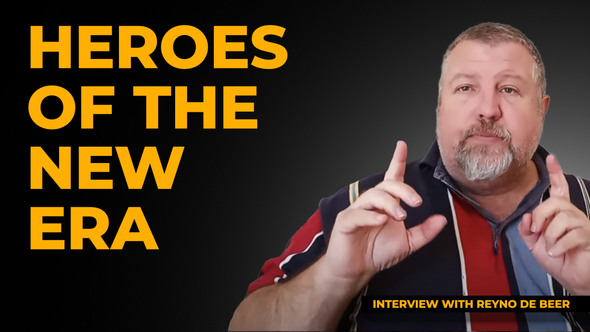
Hashtags: #Vidtol
Notendaréttur:
Standard-Kla.TV-Lizenz
Þema A-Z
Vinsamlegast sláðu inn leitarorð eða notaðu leit eftir stafrófsröð
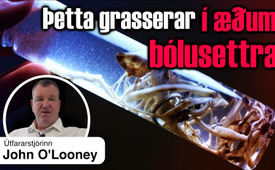
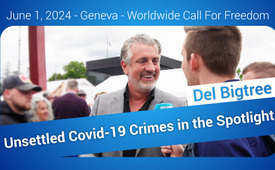


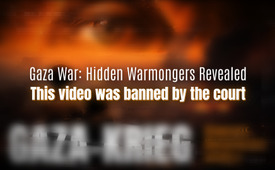

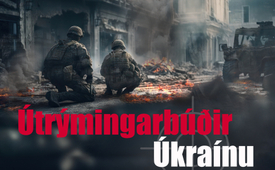

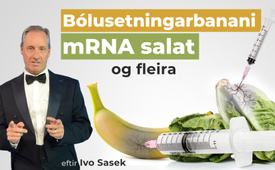
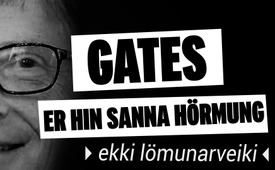
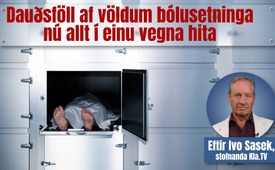
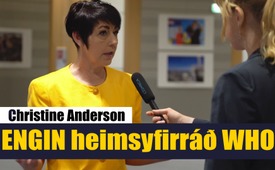
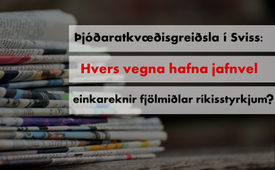
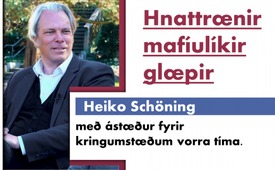
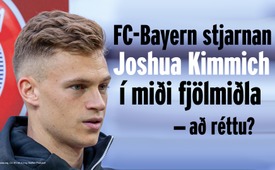
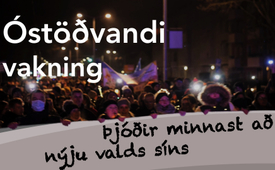

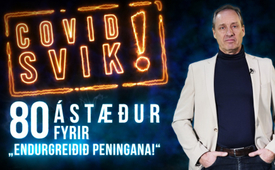
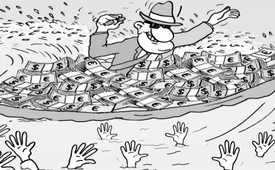

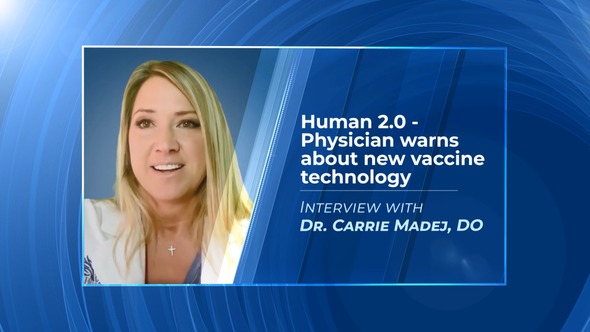

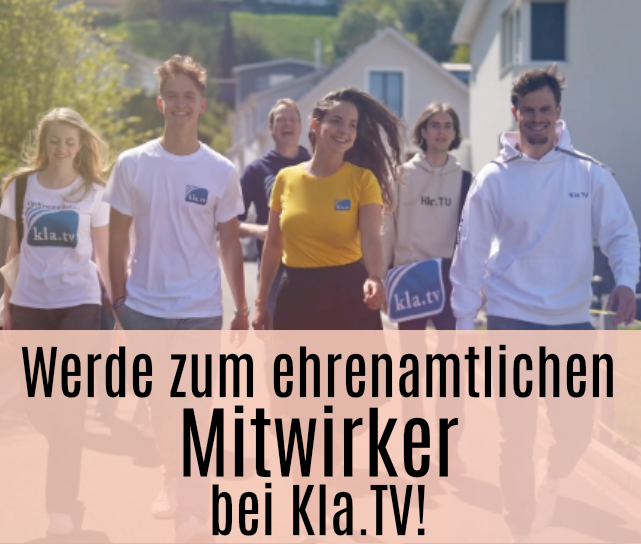
06.12.2024 | www.kla.tv/31307
Interviewer: Today, I have the pleasure to welcome Reyno De Beer at klat.tv, a very special man, I would say, for he has taken up something one would not believe it were possible. He lives in Pretoria, Gauteng province, South Africa. He is 48 years old. He is founder and president of the Liberty Fighters Network, LFN, and works with only eight co-workers and associates. But as for the impact, they are legion, as you will see. LFN is active since 2017. And as the website says: “a relentless force for justice, a voluntary association, not for gain, but for the transformation of our legal landscape, taking on the criminal banking network and driving comprehensive reforms within the justice system of South Africa and across the African continent.“ Reyno, it’s a pleasure to have you with us. Please tell us how you came up with the idea of LFN. Reyno De Beer: Thank you very much, Stephan. Well, I’ve been a human rights activist for the past 30 years already, since I've actually left school. So this is a passion of mine. I totally dislike the fact that people are being trampled on by large corporations and our governments. So in South Africa, everyone basically knows that we have a history of discrimination and oppression. It is an ideal situation for us to come forward, and especially as a white South African, to take a lead in liberation of all our people, irrespective of the race and our religions. We’ve got plenty of religions in South Africa as well. And for that reason, we have to take special care to choose our fights with the government and large corporations and to pursue that until the very end. Interviewer: So you have fights at the courts. And as I understood, you are helping people. Can you say something about that? Reyno De Beer: Oh, definitely. Our main challenges that we do is through our court system. And we also escalate... The moment when we have exhausted our court system up to our constitutional court, which is our apex court in South Africa, we then pursue the matters to the African Commission on Human People’s Rights, which is an organ of the African Union. And while we are doing that, we also attend to specific individual cases where people have problems with bank repossessions, large corporations trampling on their rights. So when they can’t afford to go to legal practitioners, which are... and everyone knows all over the world, they are very expensive. So especially in a country like South Africa, where most of our people are really living on the breadline, it is important to have an organization like ours that the moment when they can't afford going to a legal practitioner, they come to us, and we assist them free of charge. Interviewer: Yeah, that’s a great idea and a concept that we'll come back on that. Can you explain one or two court cases that you won? Reyno De Beer: Well, our most successful one up till today is that we have way back on June the 2nd, 2020, we were successful in obtaining a high court order declaring our COVID-19 lockdown regulations as unconstitutional and invalid. So that was a tremendous victory. We were probably one of the first organizations in the entire world that actually attacked those unconstitutional and invalid measures that were also implemented in South Africa. And we’ve taken that up till our constitutional court. But unfortunately, as things happen these days, our constitutional court was not aligned with our arguments. And eventually that order was then set aside. But irrespective, it created a lot of positive impact in South Africa and in the world. And then we've got quite a number of, as I’ve indicated before, matters before the African Commission on Human People’s Rights. For example, I am the legal representative for our former president, Jacob Zuma. He was, in 2021, he was sent to imprisonment for contempt of court. by our constitutional court, which was, which is our highest court. And he was imprisoned by direct order. So he did not have an appeal. So we have assisted him to also take his matter to the African Commission. And it’s currently pending before that commission still to challenge the fact that he was imprisoned without any appeal option. So those are one of the, or two of the major cases we are currently dealing with at this point in time. Interviewer: Very interesting. But I understood right, you’re not a professional lawyer, are you? Reyno De Beer: I am not. I have trained myself, actually, in law over the period of 30 years. So I am not a member of the legal fraternity in South Africa. And that creates a lot of issues for the legal fraternity in South Africa. The moment when I come on board, because they cannot treat me as a fellow of theirs. And we encourage people to actually represent themselves in court. So that they don’t need the services of a lawyer, which cost them a lot of money. And then because of this fraternal links between them, they tend to actually collude amongst one another. That should be the same in Europe as well. And it happens in South Africa plenty of times. So the moment when you represent yourself, you immediately have a very competitive advantage. The moment when you enter the courtroom. Because they cannot manipulate you into adhering to their fraternal practices amongst them. Interviewer: Yeah, I understand. Reyno De Beer: So that is one of the key issues. We empower people to use the court system and the legal system on their own. Just like I have taught myself over 30 years. And I always brag that when people ask me, are you a lawyer? Then I say, no, I’m better than a lawyer. Because that is, in fact, the truth. Because I can do things that they cannot do in many instances. And that is what we teach our people that we represent. Intervierwer: Yes. Very interesting. Thank you. At your channel on Telegram, you claim that LFN has contributed around one billion Rand in value to society by offering services that, if done by legal practitioners, would cost this much. How do you come to this conclusion? Reyno De Beer: Oh, well, that’s a calculation that we have done internally. It’s not just a thumbs up number that we've put out there. When you take the average cost of legal representation, professional legal representation in South Africa, and you put that to each and every case that we have done over the years and still busy with. For example, all our challenges or challenges against our government would most probably reach in the area of about 50 million Rand, at least at this point in time. And so when you calculate that in all the individual cases and you count them together, then we have actually saved the people of South Africa around one billion Rand in legal costs by doing that and the legal costs by doing that free of charge for them. And we will obviously get to that point how we manage to do that. But it’s so vitally important that people have access to court. And in order to do that, you have either have to get a lawyer to do that, which is going to cost a lot of money or you have to do it yourself. But we have actually put a third leg there to come to us all. We encourage that people create similar organizations like us to also empower people legally so that they can get proper assistance when they take their own matters to court. In that way, we save a lot of money for the people. Interviewer: Well, that's very interesting because it’s also a big problem in Europe and Germany that you’re suffocated basically by the high court costs. And so they get the people down. And finally, the whole case is dismissed because usually the victim has to give up for financial reasons. And I ask myself, so if you really don't charge anything for your services, why do you do that? Reyno De Beer: Well, I am a dedicated Protestant Christian. And how I understand my Bible is that we should share what we've got in abundance with others. And I believe that my God is someone who is not encouraging people to get rich and share, obviously, what they've got. And in that sense, we are sharing our expertise in the legal field with others who are not as fortunate as us. And by doing that, free of charge, without expecting anything in return, we actually get people who then donate to us for the assistance that they have received. And also others who are encouraged by our open-heartedness also come out and make voluntary donations. We always tell the people that we assist that maybe we do not have the infrastructure to accommodate you, but we will at least lead you in the right direction without charging you anything for what we’re going to do. And if you do have the financial means now or in the future, we would appreciate a voluntary donation, but it’s not compulsory. That way we’ve seen that people are so happy with the services that we render to them free of charge, that the moment when they get money and they’re in a position, they do provide to us with a voluntary donation. And that way we keep our organization going. As I say that I am not rich, but I believe that through this caring system, God provides to me and my family just enough to satisfy our needs. And not one day can I say that we do not have food, or we do not have a roof over our heads. God has a tendency and a habit to come through at the very last minute, but He always comes through for me. So I’m very much grateful and blessed by that. Interviewer: Thank you for sharing that. That’s, I think, very encouraging for the people everywhere in the world. Where we see that money has damaged so many things in this world that it is very important to encourage people not to to focus on that but to to do the right thing and everything else is provided. We come on almost to the finish of our interview: Can you tell us a little bit about the connections between Europe and South Africa because for us it’s very far away but as we talked earlier there are some interesting connections. Maybe can tell people a little bit more about that. Reyno De Beer: Well, I think the most important connection between South Africa and Germany at this point in time is the fact that many people don’t know this that when when the COVID-19 pandemic started and before it was actually called the SARS CoV-2 virus, way back between the 5th and the 7th of february 2020, Angela Merkel the chancellor of Germany obviously came to visit our President Cyril Ramaphosa. But at that very same time another very important person was also in South Africa and busy with meetings between our government and himself: none other than Bill Gates. Interviewer: Oh, what you don’t say? Reyno De Beer: And you can clarify and confirm this that on the 7th of February there was in fact a tennis match to get funding for a certain foundation. There was a tennis match between Roger Federer and (Rafael) Nadal in Cape Town on the 7th of February which was hosted by Bill Gates. So everyone can easily check that out to know that at the very same time we have Angela Merkel, Bill Gates and Cyril Ramaphosa who was at that point in time also the chief person of the African Union. I’ve seen a video later on where Bill Gates specifically has indicated that he had a meeting with Cyril Ramaphosa but he did not say that Angela Merkel and an entourage of business people from Germany came to South Africa for only those three days. And shortly thereafter as we can remember on the 11th I believe of February SARS-CoV-2 virus was identified and then also it was called COVID-19 pandemic officially. The reason why we believe that happened was that and as Bill Gates later on also said was that South Africa and Cyril Ramaphosa specifically was the corridor between the Western world and the African continent. So without that meeting I believe it would not have been possible to have the COVID-19 pandemic in the form and shape as it was. Because the African countries are very much conservative but they relied on its leader at that point in time Cyril Ramaphosa to take the lead and encourage them to follow the COVID-19 measures. Interviewer: That's so interesting. So they are we’re really an international world so it’s very good to hear from the other side of the world how you experience things and what you’re doing there. Thank you very much. Last question. How can the people abroad stay in contact with you? Reyno De Beer: Well they can visit our website. www.libertyfighters.org and all our contacting details, the cases we are working on are also there. And for those who feel that they can do much more for us and assist us in our work, our voluntary donation details are also there. And we would appreciate the support whether it's financial or just to connect with us and share information. For example sharing of information in the sense that we are also busy with a very important case against our South African Health Products Regulatory Authority to get all the vaccine records of the registered COVID-19 vaccines. So I believe that other countries like for example in Germany are also struggling to get those vaccine registration records and we can just share information, tips and records that we might have or parts of that and share it with the rest who don’t have that. And in that way maybe a bit from Germany maybe a bit from the USA, together we can find a proper record of what these COVID-19 vaccines really are, just an example but synergy definitely will really be appreciated. Interviewer: I think that’s a very good landing point. But I think it’s very important for activists from all over the world to connect as we do today by this interview. To bring the pieces together as you said, maybe from one continent maybe from the other. And really get an impact especially on the whole COVID-19 issue. Reyno, thank you very much for this interview God bless you and see you next time, bye. Reyno De Beer: Thank you very much, God bless.
eftir sl.
https://www.youtube.com/@LibertyFighters
https://libertyfighters.org/